Keto Macro Calculator
Calculate your ideal keto macro ratios for weight loss with this personalized calculator.
Now What?
Sticking to a Keto diet is challenging. We recommend that all beginners follow a structured meal plan until you get the hang of it.
- 🏃🏽♀️ The Keto cycle has a comprehensive set of plans.
- Get a customised Keto plan from CKD.
- CKD also has some free Keto recipe books here.
Is a keto diet right for you?
A keto diet can be difficult to stick to, but research suggests that it can help you lose weight faster than other diets.
- Are you training for fitness competitions?
- Are you losing weight for an event but have a shorter time window?
- Are you unable to lose weight eating normal levels of carbohydrates.
The Keto is a good option.
How does keto work?
- Keto became popular among bodybuilders to cut fat before competitions.
- When you’re on a ketogenic diet, your body will use fat as its primary energy source.
- You achieve this by limiting carbs and eating more fat.
- Without carbohydrates, the body converts food and body fat into ketones for energy.
Are calories still important with keto?
Yes. A calorie deficit is still required for weight loss.
How do I calculate macros for keto?
To calculate your keto diet macros, you must establish your estimated TDEE (total daily energy expenditure).
Your TDEE accurately measures how much energy you expend each day (at rest and when exercising).
The calculator above measures your TDEE and then creates the optimum macro ratio.
Setting a Calorie Deficit
To achieve fat loss, you need a calorie deficit.
We recommend 20% of your daily calories.
This is automatically applied when setting the Weight Goal to Lose in the above calculator.
Achieving Ketosis
Taking your body into ketosis requires very low levels of carbs.
The process can also be induced with Keto salts. However, they should be consumed in moderation.
Testing for Ketosis
You don’t have to guess whether or not your body is in ketosis.
There are several over-the-counter testing methods to determine your ketosis status.
You want to be in the range of 0.5 – 3.0 for blood ketones with the optimal fat-burning target of 2.0.
How many carbs do I eat on the Keto Diet?
The keto diet isn’t carb-free but just low in carbs.
5% of your total daily calories should be in the form of carbs.
This is 20-30 grams of carbohydrates per day for most people, depending on your stats and exercise-adjusted TDEE.
Net carbs
Carbs that don’t produce energy, like certain types of fiber, do not count toward your totals.
How much protein do I eat?
No more than 0.8 grams per pound of body weight should be consumed on a keto diet.
The calculator default is set at .7 grams per pound.
Adjust lower or higher if it’s challenging to reach your macro targets.
Some macro calculators recommend higher fat (but less protein). However, protein is essential for muscle repair and preservation.
How much fat do I eat on Keto?
After calculating carbs and protein, your remaining calories should come from fat.
Example: A moderately active woman, 30 years old, 5’5″, and 180 pounds, would have a weight loss TDEE of 1908 calories.
Here are her keto macros:
- Protein: 126 grams (27%)
- Fat: 145 grams (69%)
- Carbs: 24 grams (5%)
How much fiber do I need while doing keto?
Fiber is essential for a healthy digestive system.
You still should consume green leafy and other low-carb veggies while on the keto diet.
Fiber supplements may be necessary. Psyllium husks are an excellent natural fiber choice if you aren’t getting enough.
The essential Keto-Friendly foods
These foods will help you reach your keto macros.
- Avocado
- Ground flax seed
- Coconut oil
- Olive oil
- Grassfed butter
- Dark meat chicken
- Eggs
- Steak
- Pork
- Lamb
- Bacon
- Sour cream
- Hard cheeses
- Nuts (watch the carbs)
- Seeds (watch the carbs)
- Peanut Butter
- Almond butter
- Leafy greens and other low-carb veggies like cucumber, celery, broccoli, cauliflower, sprouts, etc.
Symptoms you may experience with a ketogenic diet
There is an adjustment period when starting a ketogenic diet. You may experience some of the following symptoms:
- Brain fog
Your brain loves glucose and consumes a lot of it. - Lack of energy
Feeling tired and lethargic is an adjustment to using fat for energy instead of sugar. - Lack of strength during workouts
You may tire more quickly without carbs replenishing your muscles’ glycogen supplies. - Cravings
Your brain will not be happy and will want you to eat carbs. Be prepared for some intense cravings when you start.
Do you have to track macros on keto?
It’s possible to go into ketosis without tracking macros, but tracking macros ensures the following three things:
- You aren’t eating too many carbs.
- You are eating the right amount of protein.
- You are eating the right amount of calories for weight loss.
How long should I be on the keto diet?
Keto dieting is suitable for short-term fat loss but is difficult to sustain long-term.
After reaching your initial weight loss goals, you should transition to a normalized set of macros.
Don’t know where to start?
- You can get started in 60 minutes with the right app and plan.
- Keto cycle has personalized meal plans and step-by-step instructions.
Sources
- Yancy, W. S., Olsen, M. K., Guyton, J. R., Bakst, R. P., & Westman, E. C. (2004). A low-carbohydrate, ketogenic diet versus a low-fat diet to treat obesity and hyperlipidemia. A randomized, controlled trial. Annals of internal medicine, 140(10), 769-777. Ref
- Mifflin, M. D., St Jeor, S. T., Hill, L. A., Scott, B. J., Daugherty, S. A., & Koh, Y. O. (1990). A new predictive equation for resting energy expenditure in healthy individuals. The American Journal of Clinical Nutrition, 51 (2), 241-247. URL http://www.ajcn.org/content/51/2/241.abstract
- Yancy, W. S., Foy, M., Chalecki, A. M., Vernon, M. C., & Westman, E. C. (2005). A low-carbohydrate, ketogenic diet to treat type 2 diabetes. Nutrition & Metabolism, 2(1), 34. Study link
87 Comments


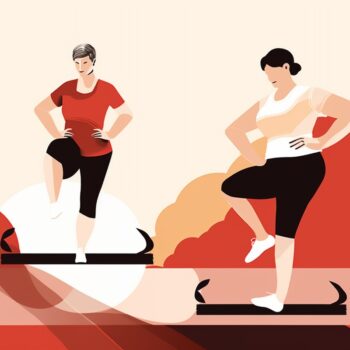 Menopause Macro Calculator
Menopause Macro Calculator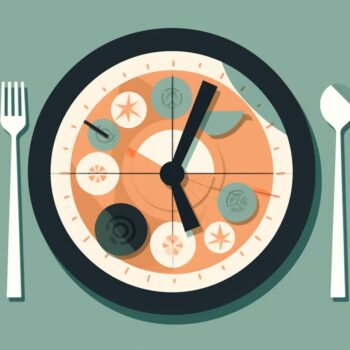 Intermittent Fasting Calculator
Intermittent Fasting Calculator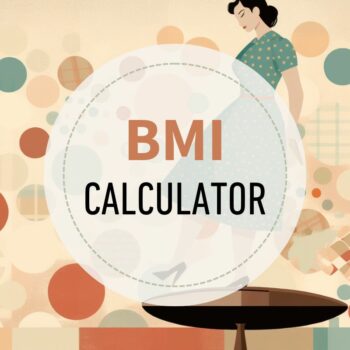 BMI Calculator
BMI Calculator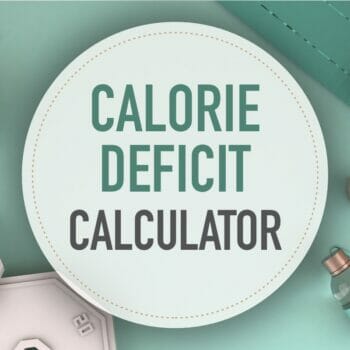 Calorie Deficit Calculator
Calorie Deficit Calculator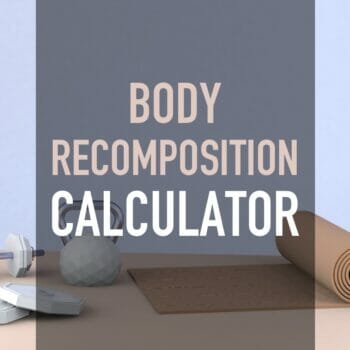 Body Recomposition Calculator
Body Recomposition Calculator
I’m confused about what it means by a percentage of fat and protein on a keto diet. Are the grams of fat and protein for a fatty raw meat calculated before or after cooking?
Hi J, The percentage is referring to what percentage of the total calories those two macros make up of your total calories. The fat grams would be what you actually consume so it would be cooked meat and the fat consumed not counting the fat that renders off.
I’ve been trying this for 2 months I was in ketosis once and I think I’m there again I just don’t have any idea the right macro method for me please help
Hi Lisa, After working with over 1600 people as a nutritional coach, the balanced macro method always wins out as the most sustainable and effective way to lose weight in the long run. I’d love to offer you a strategy call if you’re interested?
Good day sir, greeting from the city of Mexico. I have a very sedentary life, in which I work online about 4-5hrs a day approximately, do some walking (5000 steps minimum per day) and have been doing calisthenics for beginners for about 3 months now (but training in the gym 2-3x per week).
My weight is 112kgs about 245pounds with a 23% body fat and I’m 6’2 male. I started about a week ago a low carb diet using an app called nutritionIX and dieting at least 6 times a week…. and I started to feel like crap lol; low energy, less training, I even had to wake up at 6am to get calories since I was used to train in the mornings before lunch about 1-2hrs of calisthenics, and I seem not to lose fat so far. Do I have to implement some jogging, more walking or yoga and leave my computer and phone aside to relieve my brain and stay away from stress which can be causing me cortisol hormones and stealing my DHEA in which the results showed to be low recently?? Thank you so much I pray for a reply if possible sir. God bless you.
Hi Branko, Thanks for reaching out. What did you have your total calories set at with the app?
What happens if I’m over my protien by 10 – 20 grams once or twice a week? I’m finding it hard to get 189g of fat a day as well usually fall short by 50g. I’m staying under 30g of carbs daily.
You can be a little over on protein and eat less fats. This calculator just gives you estimations but you have to do what works for you personally. The main thing to is the status of ketosis and that you are maintaining a calorie deficit.
I have been doing the keto diet this is the first this year I’ve gone from 200 lb down to 165. However I cannot get below 165 I bounce back up to 168 then back down again and up again. I am a 62 you’re a female and will continue losing more weight. What are your suggestions for me?
Hi Barbara, Nice work! Have you adjusted your overall calories since starting? Since you’re now 35 pounds lighter, your body’s energy needs have changed.
Hello, could you please clarify one point for me? I calculated my keto macros at 36g Carbs, 234g Fat and 152g Protein. When it comes to Protein, does it mean I need to consume 152g of ground steak (for example) OR do I need to consume 582.38g of ground steak ? (As there are 26.1 grams of Protein in each 100g of ground steak). Thank you for your advice.
Hi Thomas, you consume enough steak or other protein source (per protein per serving) until you reach the grams of protein. So in this case you’d consume 582 g of steak, although you should vary your protein sources and watch those that contribute a lot of saturated fat.
Thanks for the clarification Ted, much appreciated!
When filling in the calculator it gave me 8g carbs. Is this Net carbs
Yes, this would be 8 grams of net carbs.
Finding it very hard to put meals together with 43 g fat, 56 g protein and 8g carbs as suggested. I am eating 1200 cals per day and eating only 2 meals a day but not able to get the fat protein and carbs right.
Hi Eve, You may have to do two meals and some snacks to round things out.
Started keto diet for epilepsy,, and the weight is falling off ,, so let’s see the progress and hope it works for my health also !
Great to hear that the keto diet is working well for you! Keep us updated on your progress and best wishes for your overall health.